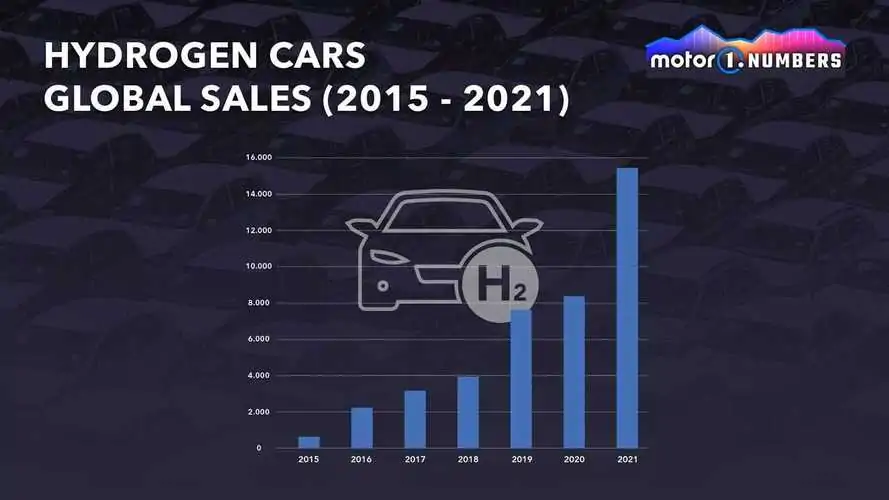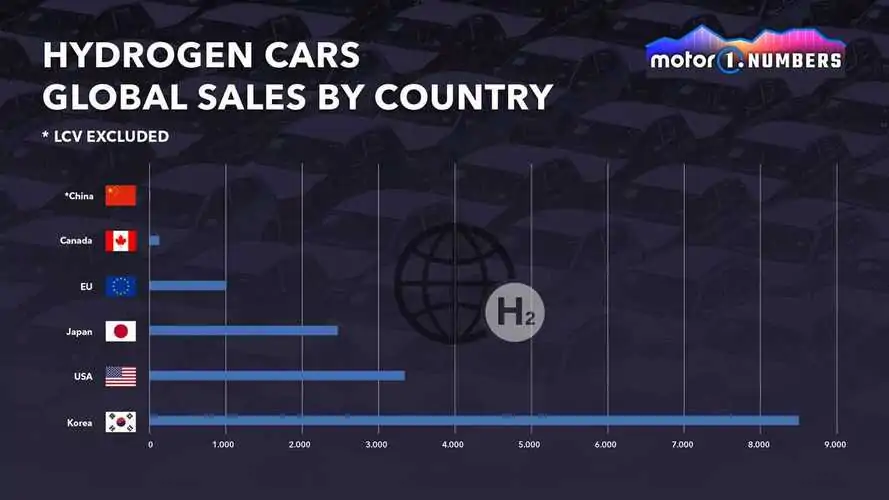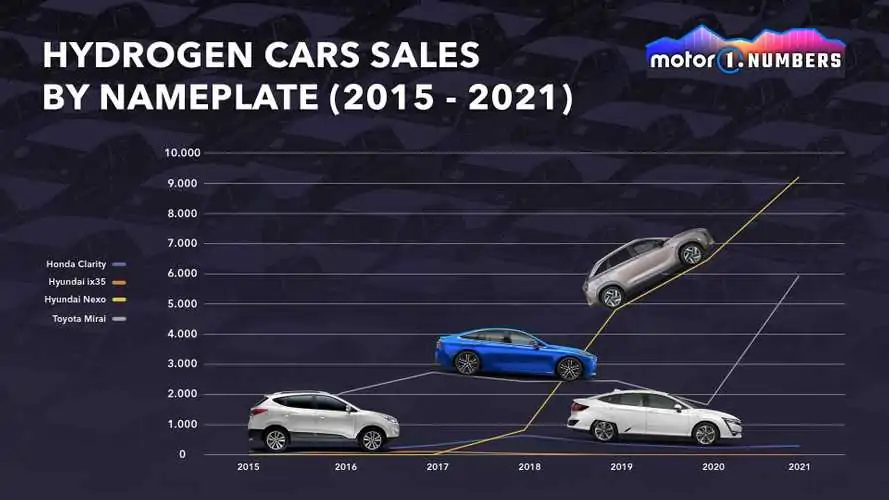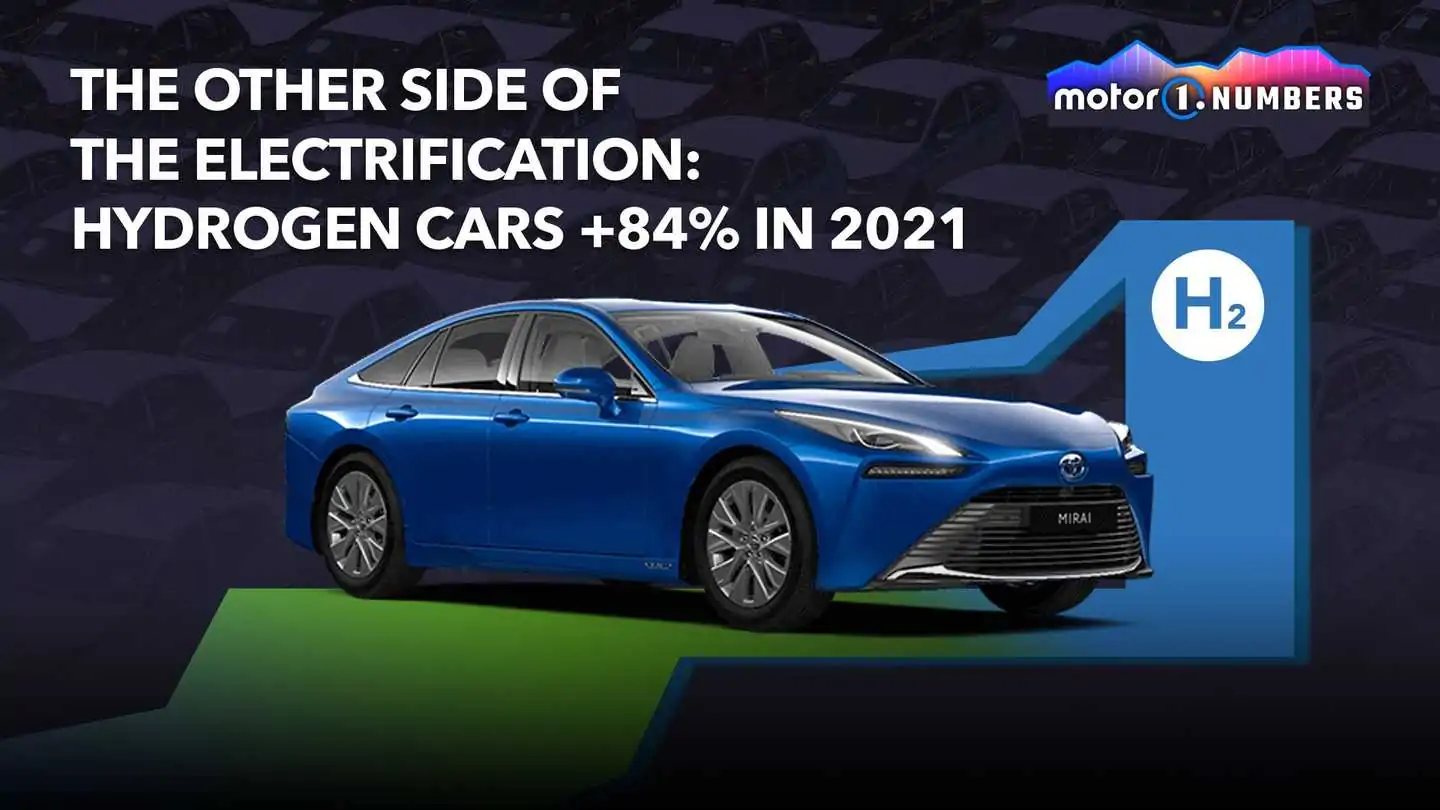While global numbers are still very low, research shows that South Korea is the largest market.
Analysts and consumers tend to focus on the transition from internal-combustion cars into electric vehicles. But there is another side to this green-car story that’s not well-known. Last year, hydrogen fuel-cell vehicles showed interesting but modest figures. This suggests that battery-electric power may not be the only way to go.
According to JATO Dynamics, worldwide sales of hydrogen-fuel-cell cars reached 15,500 units in 2021. It is a small number compared with other fuel types. However, it shows that the demand for hydrogen fuel-cell cars increased by 84 per cent compared to 2020 when 8,400 vehicles were sold. The increase in demand compared to pre-pandemic levels is even more impressive at 103 percent.

Niche Segment, For How Long?
Rarely do you see a hydrogen fuel cell car on the streets. Around 41,700 hydrogen vehicles were sold since 2011, which is roughly the same amount of cars that were sold in China in only four days. These vehicles sell for high prices, but the lack of strong hydrogen infrastructure is contributing to their low sales. There are very few options for hydrogen fuel-cell vehicles at the moment.
The Hyundai Nexo, and the Toyota Mirai accounted for 98 percent of hydrogen car sales last year. The phased out Honda Clarity, as well as a small number of test cars made by brands like Maxus, BMW and Peugeot, accounted for the remaining sales.
Future plans for hydrogen fuel cell vehicles are not in line with current sales volumes. Other automakers, such as BMW or Volkswagen, announced the development and production of hydrogen-powered vehicles in conjunction with a range of new battery-electric vehicles following the launch of the second-generation Toyota Mirai.
BMW plans to produce 100 hydrogen-test units for the X5 this fiscal year. Kia has announced plans to launch a hydrogen fuel cell lineup by 2028. Volkswagen Group has announced that it will leave all fuel-cell research to Audi teams, which already have more than 100 employees. This technology is also being used by Volvo trucks and Daimler trucks for larger commercial vehicles.
South Korea is leading the way, far and away
The statistics for South Korea show that the market for hydrogen fuel-cell cars is the largest, even though these vehicles are still in development. This nation is by far the largest hydrogen fuel-cell car market, according to figures for 2021.

South Korea is responsible for 55% of global volume thanks to its dominant position at Hyundai as well as the expansion of hydrogen infrastructure. The sales jumped almost 5,800 units from 2020 to just over 8,500 last year. It all boils down to one vehicle, the Hyundai Nexo. The Hyundai Nexo is the most popular hydrogen fuel-cell vehicle worldwide, accounting for 92 percent of the 9,208 global Nexo sales.

Although the Nexo was released in 2018, it is not the only hydrogen-fuel-cell vehicle to be noted. In 2019, the second-generation Toyota Mirai was released. Sales increased by 257 percent in 2021. The United States was the main market for the Mirai in 2021, and not South Korea. There were 2,629 units sold, followed by Japan with 2,438 units, and 730 vehicles across Europe.
